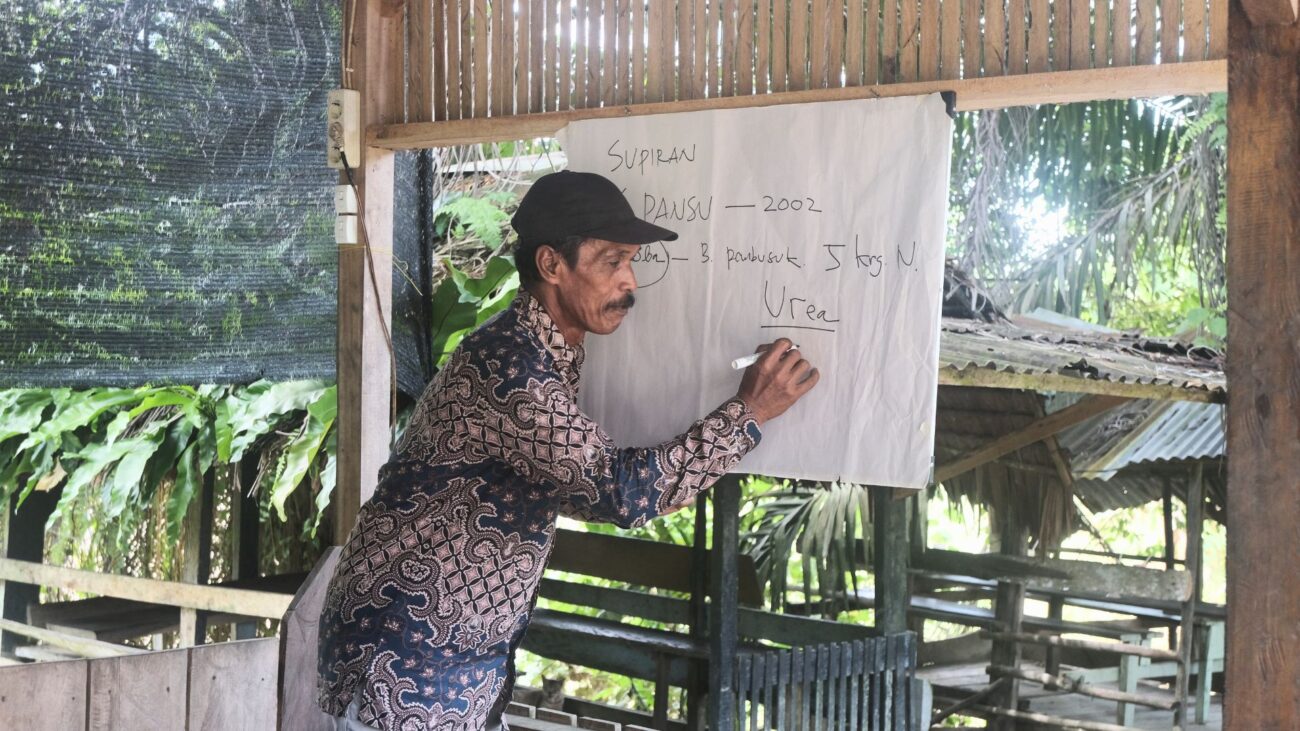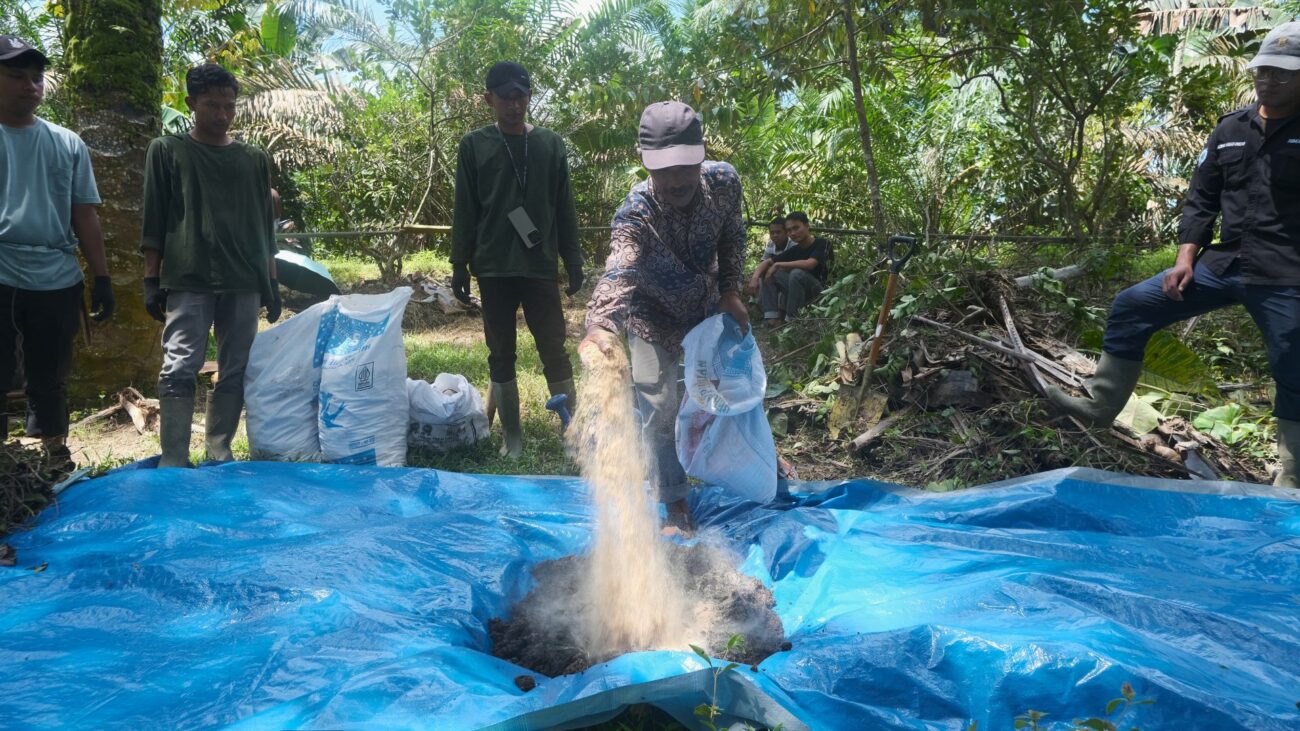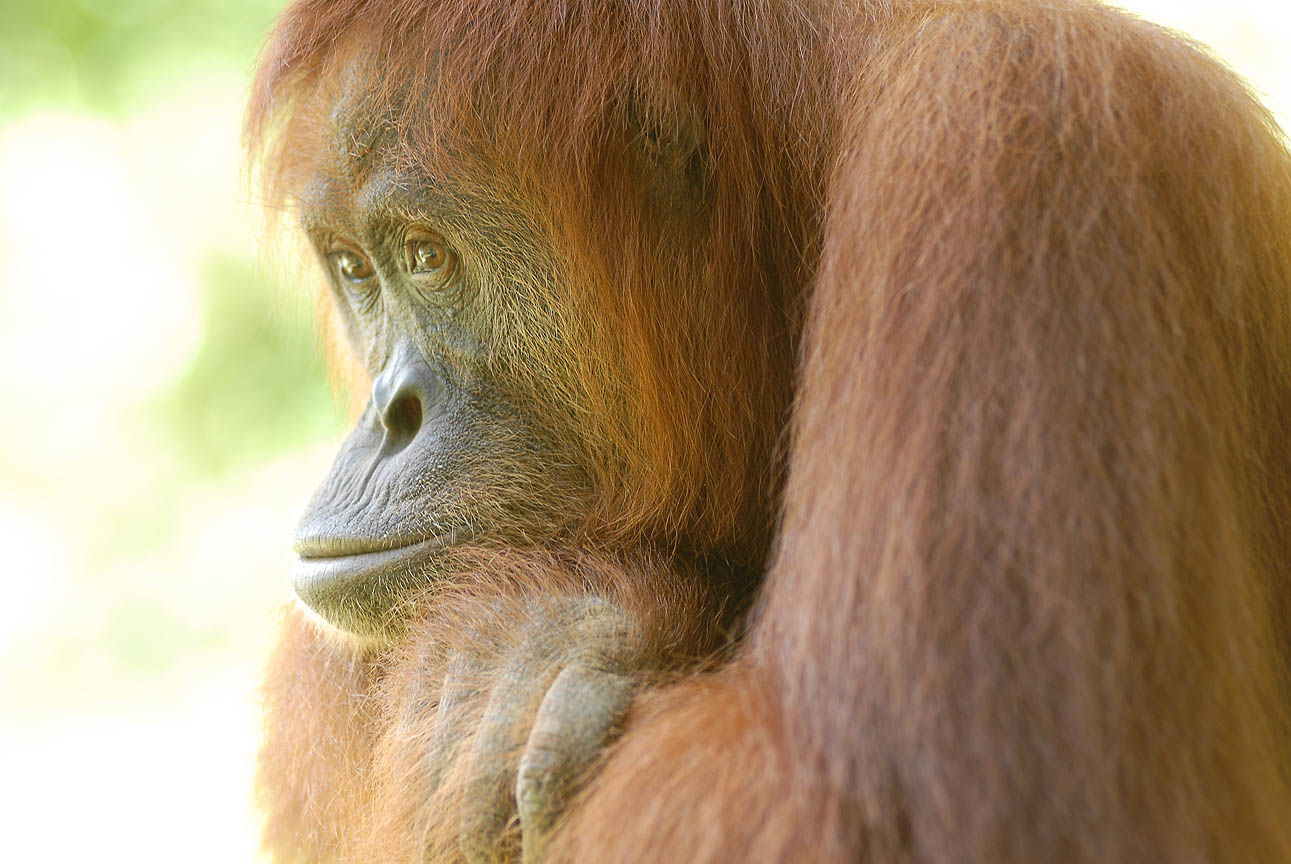
By processing cow dung into organic fertiliser, communities can reduce pollution while improving soil quality and supporting local food security. Through this training, communities and field staff will be able to:
The training is easy to implement and uses common resources which may have previously been overlooked. This practical, contextual learning enables participants to immediately apply their new skills in their own gardens and nurseries.

A local, senior farmer leads the training.
The training was led by a local, senior farmer with over 20 years of experience in agriculture and seed production. Mr Supiran brought his deep understanding and practical experience to the session, ensuring that participants learn methods that are proven to be successful in the field.
Participants learned how to:

The training also included practical elements.
From over two decades of working in orangutan landscapes, we’ve learned that building open, genuine and lasting relationships with local communities is crucial to conservation success.
The only way to safeguard orangutan populations in the long-term is by collaborating with local people and partners. We must develop practical solutions that genuinely improve the lives of forest-edge communities. This approach bridges the gap between conservation and the people who call these forests home, and this training is a vital part of that process.
This training tackles several issues at once. By teaching villagers to process cow dung, PETAI is helping to:
Masrizal Saraan, Executive Director of PETAI, explains: “This approach is all about using local resources that are often overlooked, making it a sustainable and cost-effective solution, which is tailored to the community’s specific needs.”
“Through this training, we are hoping to create a ripple effect – where this knowledge will be shared from one citizen to another. Impactful forest restoration begins with empowered and supportive communities.”
You can help protect Sumatra's Orangutans. Click to get updates
